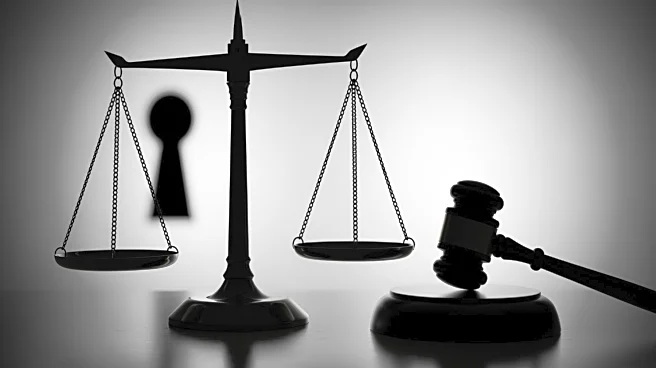What's Happening?
The Knesset National Security Committee in Israel has approved a bill proposed by MK Limor Son Har-Melech that mandates the death penalty for terrorists. The bill is set to be presented to the full Knesset for the first of three votes, expected to occur
on Wednesday. Despite its progression, the bill has sparked controversy due to the lack of serious debate regarding its implications. Critics argue that the bill could tarnish the reputation of the Knesset and the State of Israel, raising ethical and legal concerns about its potential impact on human rights and justice.
Why It's Important?
The approval of the death penalty bill for terrorists by the Knesset committee is a significant development in Israeli politics, reflecting ongoing debates about security and justice. If enacted, the law could alter Israel's legal landscape, impacting its international standing and relations with human rights organizations. The bill's progression highlights the tension between security measures and ethical considerations, with potential consequences for Israel's democratic values and its approach to counter-terrorism. Stakeholders, including legal experts and civil rights groups, are likely to scrutinize the bill's implications, considering its potential to influence public policy and societal norms.
What's Next?
The bill's advancement to the full Knesset for voting marks a critical juncture in its legislative journey. If passed, it could lead to significant changes in Israel's legal system, prompting reactions from both domestic and international communities. Opponents may seek to challenge the bill through legal avenues or public campaigns, emphasizing its ethical and human rights implications. The outcome of the upcoming votes will be pivotal in determining the bill's future and its impact on Israeli society and governance.
















